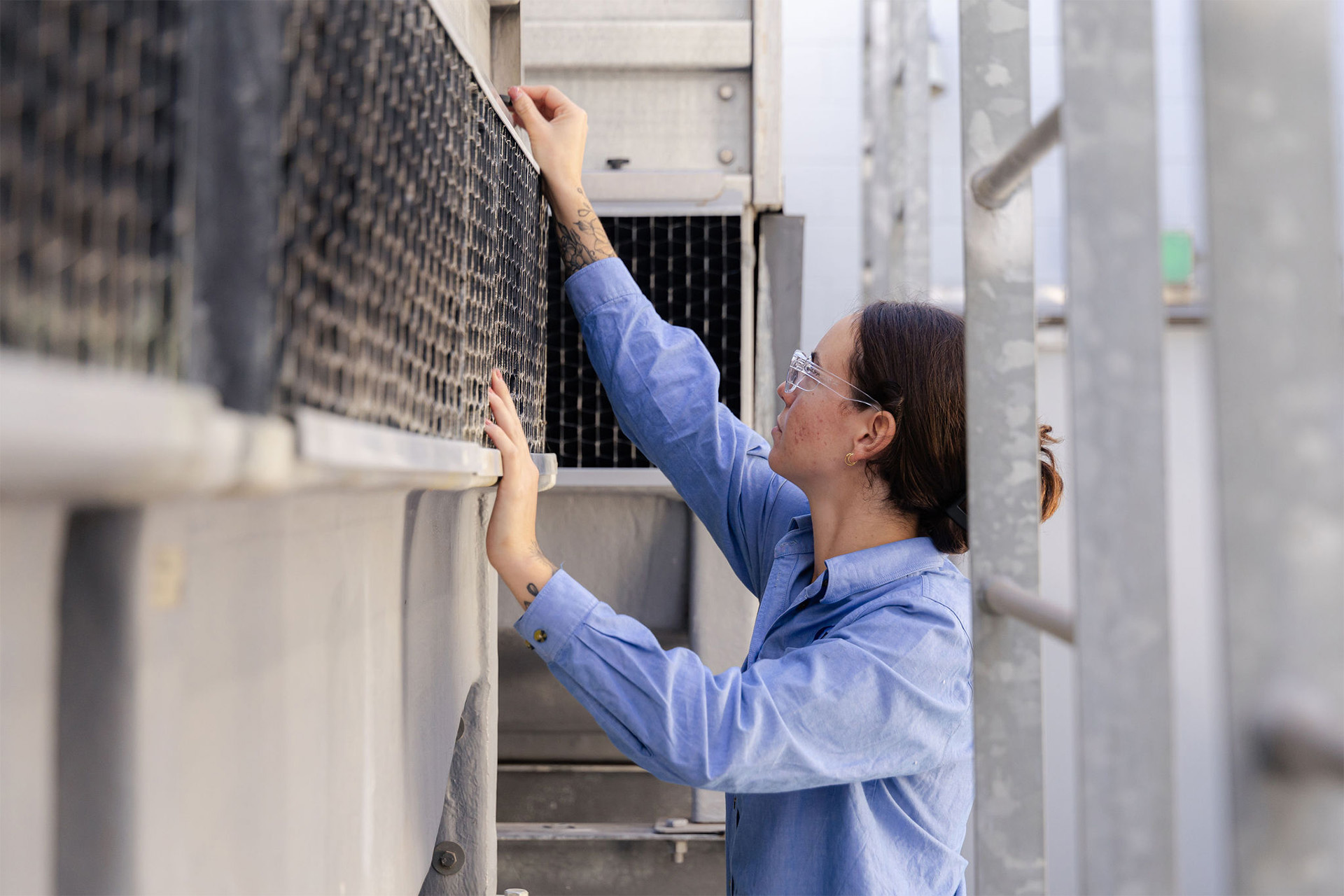Reducing operational costs with preventive HVAC maintenance
Effortless efficiency through regular maintenance
In today’s competitive business environment, managing operational costs is crucial for maintaining profitability and achieving long-term success. One area that can lead to substantial savings is the maintenance of HVAC (Heating, Ventilation and Air Conditioning) systems. Implementing preventive HVAC maintenance helps prevent costly breakdowns and extends the lifespan of equipment, enhancing overall efficiency and reducing energy consumption. This blog post will explore how businesses can use preventive maintenance to save costs.
Understanding the importance of preventive HVAC maintenance
The cost of neglect
By neglecting HVAC maintenance, you risk frequent breakdowns, inefficient system performance and increased energy consumption. The Australian Institute of Refrigeration, Air Conditioning and Heating (AIRAH), the leading authority on HVAC&R, strongly advocate for regular maintenance as a crucial component of efficient and reliable HVAC systems. For building owners and managers, this translates to potential savings of thousands of dollars annually. Furthermore, HVAC systems account for upwards of 50% of a building’s energy usage. An inefficient system can significantly inflate energy bills, reducing overall profitability. But with preventive maintenance, you can secure your investment and ensure long-term financial stability.
Benefits of preventive maintenance
- Prolonged equipment lifespan: Regular maintenance ensures all components function correctly, reducing wear and tear.
- Energy efficiency: A well-maintained system uses less energy, lowering utility bills.
- Improved air quality: Clean filters and ducts contribute to healthier indoor air, creating a more comfortable and pleasant environment for occupants. This enhances their well-being and shows that you care about their comfort, fostering a positive relationship with your tenants or employees.
- Reduced downtime: Scheduled maintenance minimises the risk of unexpected breakdowns, ensuring uninterrupted operations.
Fundamental guidelines and best practices: AIRAH DA19
The AIRAH DA19 is a vital resource for HVAC&R maintenance. It provides essential elements such as maintenance schedules, detailed instructions and recommended timelines for various tasks. This guide is designed to aid in planning and executing effective maintenance strategies that optimise system performance.
At its foundation, the DA19 framework is organised around three key levels of maintenance: compliance (C), Good Practice (B) and Best Practice (A). The appropriate level for each system or plant component must be defined in the scheduled maintenance tender documentation, ensuring that all parties involved comprehend the requirements and expectations.
The AIRAH DA19 user guide has been endorsed by the Property Council of Australia (PCA), the Facility Management Association (FMA) and the Air Conditioning and Mechanical Contractors Association (AMCA).
Implementing preventive HVAC maintenance with DA19
The DA19 guideline provides invaluable insights for businesses to reduce operational costs and enhance the efficiency of HVAC systems. These industry standards are a comprehensive blueprint for effective preventive maintenance strategies that ensure optimal system performance and longevity.
Key DA19 recommendations for optimal maintenance
- Regular inspections:
The DA19 guidelines emphasise the importance of regular inspections to identify potential issues before they escalate into costly repairs. Facility managers should schedule systematic reviews of all HVAC components, checking for signs of wear and tear, leaks and inefficiencies. For example, monthly visual inspections combined with bi-annual detailed system audits can significantly reduce the risk of unexpected breakdowns.
- Filter replacements:
Clean filters are critical to maintaining efficient airflow and system performance. DA19 recommends replacing filters at regular intervals, depending on usage patterns and environmental conditions. This simple yet effective practice improves air quality and energy efficiency, leading to substantial cost savings over time.
- Building management systems:
BMS systems play a crucial role in monitoring and controlling the mechanical and electrical systems within a building. They are designed to oversee essential elements such as heating, ventilation and air conditioning (HVAC) systems, lighting and security systems, ensuring optimal performance and efficiency.
Practical steps for implementation
- Develop a maintenance schedule: Establish a detailed maintenance calendar that aligns with DA19 recommendations. Ensure tasks such as inspections, filter changes and performance checks are clearly outlined and assigned to qualified personnel.
- Invest in training: Equip your maintenance team with the necessary skills and knowledge to perform DA19-aligned activities proficiently. Regular training sessions and access to updated guidelines will empower them to manage HVAC systems effectively.
- Utilise technology: Leverage advanced maintenance management software to automate scheduling, track maintenance activities and generate performance reports. This ensures all maintenance actions are timely and well-documented, enhancing accountability and transparency.
- Engage local experts: Consider partnering with local HVAC experts familiar with DA19 standards. Their expertise can provide invaluable guidance and support, ensuring your systems are maintained to the highest standards.
Proactively managing your HVAC systems through preventive maintenance is more than just a cost-saving measure; it reflects a commitment to optimal operational performance and enhanced occupant comfort. By utilising maintenance techniques outlined in DA19, businesses can benefit from extended equipment lifespans, improved energy efficiency and superior indoor air quality—all contributing to a more sustainable and profitable operation.
At MPS, we specialise in helping you implement or refine your preventive HVAC maintenance strategy to align with the DA19 guideline. Our team of experts is ready to collaborate with you to create a customised maintenance plan tailored to your specific requirements. Don’t wait for costly breakdowns or inefficiencies to disrupt your business. Contact MPS today to explore your building’s preventive maintenance needs.
AUTHOR

Rod Isard

Director, East Coast
Since joining MPS in 2010 as a Director, Rod has contributed 30 years of extensive HVAC industry experience. With a trade and service background, he deeply understands customer service, quality and meeting expectations, guiding his principles. Further studies at the Institute of Company Directors have honed his business acumen. Education in sustainability, compliance and building efficiency drives his passion for delivering tangible client results.
